We’ve all done it: browsed friends’ bookshelves, riffled through their vinyl collection or peeked through a stack of video games left in front of their TV. You can learn a lot about people based on what media they consume and leave lying around their house. And perhaps you’re familiar with what director John Waters said you shouldn’t do if someone doesn’t have books in their house?
Unfortunately, the modern streaming age means that we aren’t collecting music or movies the way we used to — we might put a few tomes on our coffee table as decoration, but stacks of books or CDs aren’t practical anymore. So how do we remember everything we’ve listened to lately? How do we show off what we’ve read? Indeed, there are quite a few apps dedicated to showcasing the media experiences we’ve “collected.” We’ve gathered some of the better ones so you can easily keep track of — and brag about — what you’re watching, listening to, playing and reading in this digital age.
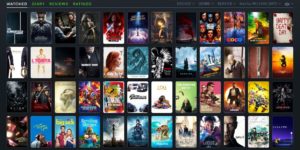
IMDb might be the big kahuna when it comes to looking up stuff about film, but it’s pretty terrible for cinephiles who want a place to track their film consumption and connect with other film lovers. Letterboxd is a site built by people who take their movie watching seriously. You can log your views, tag them, make themed lists and write reviews for films you’ve already seen and written — after all, sometimes you might notice something new on a rewatch. Even if you’re not into obsessively tracking your film inventory, the site and its app are still worth a look just for the quality of the reviews: It’s a more discerning group of watchers than you’d find on Rotten Tomatoes, with a fun mix of serious critical analysis and self-deprecation.
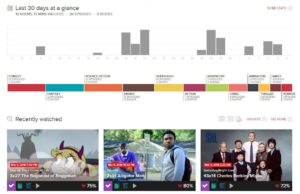
Trakt.tv doesn’t make its own app that you can just download and start using. Instead, it focuses its efforts on its website and API, which sit at the center of a robust ecosystem of third-party apps targeting different users’ needs. Meanwhile WatchAid will give you the skinny on which streaming service carries your favorite shows while serial bingers can use Serist to keep tabs on how far they’ve made it into a long-running program like Game of Thrones or West Wing. If you do a lot of your watching on your computer via services like Netflix or on media players like Apple TV, there are ways for Trakt to automatically keep tabs on those, too, creating a more holistic, cross-platform picture of your viewing habits. It’s like having your own personal Nielsen ratings system.
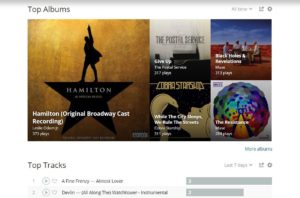
We listen to way more music than we can ever keep tabs of manually, so that’s what makes Last.fm’s auto-scrobble so great. You simply install the app on your computer or phone and it scours iTunes, Google Play or Windows Media Player for your listening habits. You can also have streaming services like Spotify and Tidal send information directly to Last.fm. Data nerds will love how it generates stats on your favorite tracks, albums and artists, delivering a weekly listening report that even breaks it down by how many new artists you’ve sampled and your most popular genres. Maybe you don’t need that much information, but then again, there’s something comforting about knowing that even after 10 years and changing tastes, The Pixies’ “Where Is My Mind?” still hasn’t been dethroned as my top track.
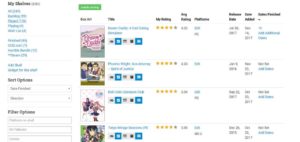
The pile of shame. Every gamer has one: that stack of games you’ve purchased but haven’t finished … or in many cases, never even played. To tackle that backlog, it helps to get organized, and Grouvee is a great way to get your play habits sorted. You can make lists, track the status of each game (like played and playing) and even auto-import game info from your Steam library like what you own and how long you’ve played it. Grouvee’s game database pulls from Giant Bomb, so it’s pretty robust, though the downside is that I’ve found it easy to keep adding games to my backlog as fast as I finish them, with no end in sight.
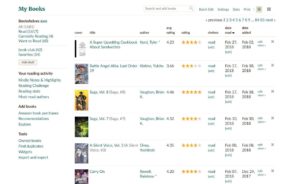
Goodreads is the king of media-tracking sites. You can make lists, rate books and track your reading progress by page or percentage over multiple titles. The system will use your reading history to make recommendations, and they’re pretty good ones too — after being coerced by a friend into reading David Mitchell’s The Bone Clocks and utterly hating it, Goodreads told me to read Emily St. Cloud’s Station Eleven, which I loved. Goodreads is good enough at what it does that Amazon actually went and bought it back in 2013. Sure, that purchase was all about getting you to spend more money on books, but it’s admittedly pretty handy to be able to update your reading status directly to Goodreads from your Kindle.


